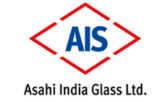call now 9997155111
Duration 3 Years and 2 Years for Lateral Entry
Eligibility Criteria High School with minimum 50% marks in Science & Mathematics from a recognized board or equivalent. For Lateral Entry 10+2 with minimum 45% Marks (40% in case of reserved category) in Physics, Mathematics along with Chemistry/Biotechnology/Computer Science as one of the subjects.

Why take this Course?
There are numerous exciting and paying career options after completing a Diploma in Civil Engineering. Students can enroll for a degree in Civil Engineering course or can look for a suitable job.
Students can apply for Government jobs in different PSUs like ONGC, EIL, EPIL, NBCC, and organizations like DRDO, Indian Railways, Water Boards, etc.
A few of the other areas that are also in demand for diploma in Civil Engineering:
Why choose Us?
Progressions & Career
Here are the opportunities after pursuing a Diploma in Civil Engineering:
Progression:
Other options in the progression include:
Career:
Here are the career roles a candidate can explore after completing a Diploma in Civil Engineering:
The Shivalik Advantage
Top Recruiters






Curriculum
| 991002 | Applied Mathematics I |
| 991003 | Applied Physics I |
| 991004 | Applied Chemistry I |
| 991005 | Computer fundamentals |
| 991006 | Engineering Drawing I |
| 991003 | Applied Physics (Practical) |
| 991004 | Applied Chemistry I (Practical) |
| 991005 | Applied Chemistry I (Practical) |
| 991005 | Computer fundamentals (Practical) |
| 991007 | General Workshop Practice I (Practical) |
| 992001 | English and Communication Skills-II |
| 992002 | Applied Mathematics II |
| 992003 | Applied Physics II |
| 992004 | Applied Chemistry II |
| 992005 | Environmental Science and Energy Management |
| 992006 | Engineering Drawing II |
| 3.1 | Fluid Mechanics |
| 3.2 | Applied Mechanics |
| 3.3 | Surveying - I |
| 3.4 | Construction Materials |
| 3.5 | Building Construction |
| 3.6 | Building Drawing |
| 3.7 | Electrical & Mechanical Engineering Systems |
| 4.1 | Concrete Technology |
| 4.2 | Soil & Foundation Engineering |
| 4.3 | Water Supply & Waste Water Engineering |
| 4.4 | Irrigation Engineering |
| 4.5 | Surveying - II |
| 4.6 | Structural Mechanics |
| 4.7 | PHE & Irrigation Engineering Drawing |
| 4.8 | Industrial Trainin |
| 5.1 | Reinforced Concrete Design |
| 5.2 | Highway & Airport Engineering |
| 5.3 | Railways, Bridges and Tunnels |
| 5.4 | Quantity Surveying & Valuation |
| 5.5 | Repair & Maintenance of Buildings |
| 5.6 | Application and uses of various software in Civil Engineering |
| 5.7 | Minor Project Work |
| 6.1 | Steel Structures Design |
| 6.2 | Earthquake Resistant Building Construction |
| 6.3 | Construction Management and Accounts & Entrepreneurship Development |
| 6.4 | Advanced Construction Technology |
| 6.5 | Environmental Pollution Control |
| 6.6 | Structural Drawing |
| 6.7 | Major Project Work |
| 6.8 | Survey Camp |
| 6.9 | Employable Skills |
Program Specific Outcomes and Program Educational Objectives
Engineering knowledge: Apply the knowledge of mathematics, science, engineering fundamentals, and anengineering specialization to the solution of complex engineering problems
Problem analysis: Identify, formulate, review research literature, and analyze complex engineering problems reaching substantiated conclusions using first principles of mathematics, natural sciences, andengineering sciences
Design/development of solutions: Design solutions for complex engineering problems and design system components or processes that meet the specified needs with appropriate consideration for the public health and safety, and the cultural, societal, and environmental considerations.
Conduct investigations of complex problems: Use research-based knowledge and research methods including design of experiments, analysis and interpretation of data, and synthesis of the information toprovide valid conclusions
Modern tool usage: Create, select, and apply appropriate techniques, resources, and modern engineering and IT tools including prediction and modeling to complex engineering activities with an understanding ofthe limitations
The engineer and society: Apply reasoning informed by the contextual knowledge to assess societal, health, safety, legal and cultural issues and the consequent responsibilities relevant to the professionalengineering practice
Environment and sustainability: Understand the impact of the professional engineering solutions insocietal and environmental contexts, and demonstrate the knowledge of, and need for sustainable development
Ethics: Apply ethical principles and commit to professional ethics and responsibilities and norms of theengineering practice
Individual and team work: Function effectively as an individual, and as a member or leader in diverseteams, and in multidisciplinary settings
Communication: Communicate effectively on complex engineering activities with the engineering community and with society at large, such as, being able to comprehend and write effective reports and design documentation, make effective presentations, and give and receive clear instructions.
Project management and finance: Demonstrate knowledge and understanding of the engineering and management principles and apply these to one‘s own work, as a member and leader in a team, to manageprojects and in multidisciplinary environments
Life-long learning: Recognize the need for, and have the preparation and ability to engage in independent and life-long learning in the broadest context of technological change.
Students will be able to plan and design building, roads, bridges and hydraulic structures.
Students will be able to apply modern construction techniques and management tools to execute civil engineering projects.
To provide graduates with sound fundamental knowledge to design solutions for complex civil engineering problems.
To bring out an effective teaching learning process,through which the students will contribute to the development of sustainable infrastructure.
To provide an excellenmt academic environment for the students with asrong etical attitude and societal responsibilities.
To prepare graduates to learn to harness the evolving technologies as part of an organisation or as entrepreneurs.
Facilities
Vision & Mission
Vision of the Department
To be a centre of excellence in the field of civil engineering and to create the new technology for future requirements with the necessary knowledge, skills and attitudes of civil engineering that can be entrusted by the society to lead a sustainable world with enhanced quality of life.
Mission of the Department